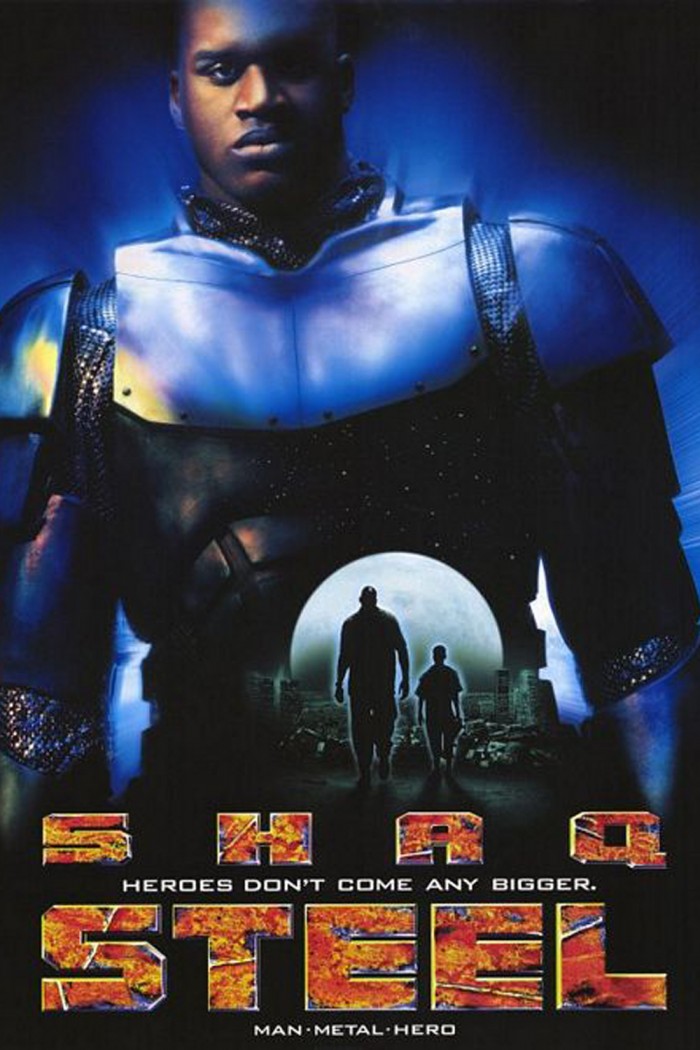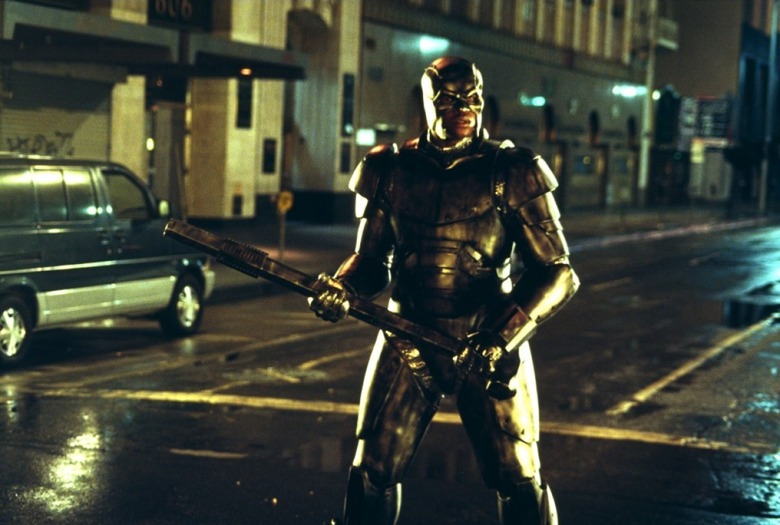How Did This Get Made: Steel (An Oral History)
We may receive a commission on purchases made from links.
Iron Man – Robert Downey Jr. + Shaq = How Did This Get Made?!?!
Nobody sets out to make an unsuccessful movie. But the truth is, it happens all the time. And when it does, there's often a fun misadventure or cautionary tale lurking somewhere behind the scenes. This is that story for the Shaquille O'Neal superhero movie Steel.
Steel Oral History
How Did This Get Made is a companion to the podcast How Did This Get Made with Paul Scheer, Jason Mantzoukas and June Diane Raphael which focuses on movies This regular feature is written by Blake J. Harris, who you might know as the writer of the book Console Wars, soon to be a motion picture produced by Seth Rogen and Evan Goldberg. You can listen to the Steel edition of the HDTGM podcast here.
Synopsis: When someone starts arming common criminals with the super-secret weapon than John Henry Irons (Shaquille O'Neal) designed for the military, Irons welds together a suit of armor and tries to save his city.Tagline: Heroes Don't Come Any Bigger
In the summer of 1993, Shaquille O'Neal commemorated his lifelong love of Superman with a tattoo left arm. That same summer—mere months after the iconic Man of Steel had been murdered in the DC Universe—four "Supermen" stepped forward to fill the void and protect the city of Metropolis. One of those four heroes was an African-American ex-weapons designer who went by the moniker "Steel." This character caught the attention of music producer Quincy Jones and his partner David Salzman, who liked the idea of bringing a role model like Steel to the big screen. And after a conversation with basketball super agent Leonard Armato, Jones felt he had found the perfect guy for the part in Shaquille O'Neal.
For Shaq, the Superman superfan, this was not a difficult sell. "Shaq thought it was cool," recalls Leonard Armato. "You get to make this iron suit, you come in and save the city. It's a superhero movie. Why wouldn't you like it, you know?" So Shaq was on board and so too was Warner Brothers. But what happened next was no slam dunk.
Here's what happened, as told by those who made it happen...
Featuring:
Part 1: Evolution of a Shadow
Kenny Johnson: Back in college, I was not much of a writer. And I really didn't think I was for many, many years. I was at Carnegie Mellon—though it was then the Carnegie Institute of Technology—and I managed to piece together a short film just before I graduated college there. Which was interesting to do in a school with no film equipment. But I came up with a very simple little psychological thriller that could be shot in the wonderful sort of neoclassic fine arts building at school. Just this sort of grandiose cavern of arches and vaulted ceilings. Very appropriate place for a spooky situation at night that plays upon a young woman's paranoia and fears. Ended up being 30 minutes long. It was called Evolution of a Shadow. And so with my film under my arm, I went to New York and they basically said: Why did you come to New York?Johnson came to New York because he was already on the east coast, though probably even more so because he had no contacts out west. Kenny Johnson: I figured they made some movies in New York, but unfortunately not that many at that time in the world. So I ended up in TV at first. Started as a production assistant at CBS and within a year I had secured a directing job at WPIX, the largest independent station in New York. I was 22 years old, producing and directing TV in New York. It was not what I wanted to be doing—not the dramatic film work I sought—but listen: I got a job and I was married with kids so I needed it.About a year after that, Johnson was approached by Roger Aires who was then the executive producer of the world's first daytime talk variety program. Kenny Johnson: This was shortly before Nixon hired Roger to be his media advisor. And I said, "No thanks, Roger. I appreciate the offer, but I really want to make movies." He said he'd let me do a lot of film work and it'd be great experience and yada yada yada...Roger's very seductive. So I joined The Mike Douglas Show as a Producer and soon took it over as Executive Producer.During Johnson's tenure, The Mike Douglass Show excelled, but it was not what the young filmmaker wanted to be doing. So at 25, he decided it was time to move. And, as luck would have it, he now had a contact in Los Angeles. Kenny Johnson: My college friend. A kid named Steven Bochco. Steve was a year younger than me in college and had gone out to Hollywood and gotten his foot in the door at Universal, where he was a fledgling staff writer. This was long before he created Hill Street Blues, LA Law, NYPD Blue and everything else. But at least I had Steve out there and a couple other friends. So I packed up, moved out there and was ready to make movies. But then California basically said: What are you talking about? You're a talk show producer.Despite the cold water splashed on his dream, Johnson stayed in LA (in Bochco's guest room, actually) and tried to make it work. A mission that was aided greatly after Bochco persuaded Johnson to start writing. Kenny Johnson: He made me do it and I discovered that I could write, and I could write pretty fast. So I became a great writer of unproduced screenplays. In the meantime, Steve had been introducing me around to the guys at Universal, including a guy named Stephen Cannell, who was also one of the Young Turks. He was a story editor on a show called Adam 12. Bless his heart; he gave me a couple of writing assignments and ultimately a directing assignment on Adam 12...So I was starting to get my foot in the door when Bochco shared a script of mine [about Hollywood stuntmen] with Harve Bennett, who had a couple of episodic television shows going.One of which was called The Six Million Dollar Man.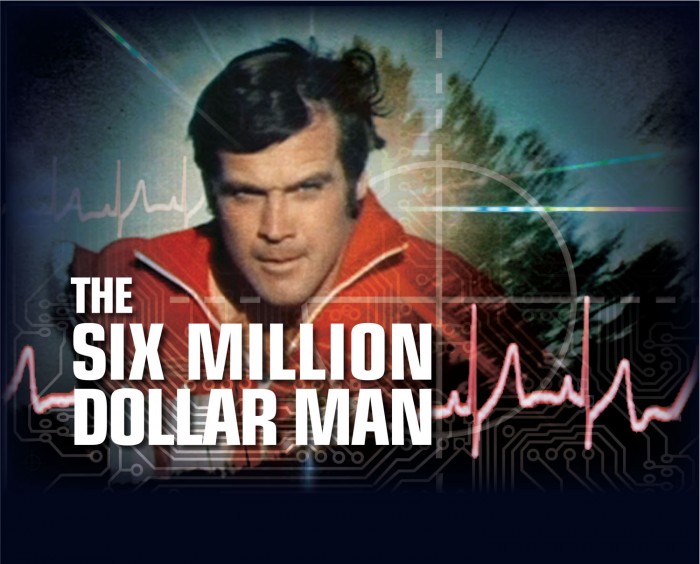 Kenny Johnson: The show was in its first full season, so they were desperately looking for scripts in a hurry. So Herb and I kind of hit it off and he asked if I had any ideas for them. I said, "Well, it's probably the most obvious idea you've already thought of, but why don't we do the Bride of Frankenstein?" You know, you've got this sort of monster kind of man, shouldn't he have a mate? Shouldn't there be a Bionic Woman?Bennett loved the idea of a Bionic Woman and hired Johnson to write up the episode. Kenny Johnson: So I did. And in the course of it, Harve asked me to join the Six Million Dollar Man. Meanwhile, the Bionic Woman went on the air and the ratings for the Six Mill just skyrocketed with the character I had created. After Return of the Bionic Woman, ABC realized they had a goldmine and Fred Silverman, who was running the network, said, "Kenny, I'd like you to spin this off into a series."
Kenny Johnson: The show was in its first full season, so they were desperately looking for scripts in a hurry. So Herb and I kind of hit it off and he asked if I had any ideas for them. I said, "Well, it's probably the most obvious idea you've already thought of, but why don't we do the Bride of Frankenstein?" You know, you've got this sort of monster kind of man, shouldn't he have a mate? Shouldn't there be a Bionic Woman?Bennett loved the idea of a Bionic Woman and hired Johnson to write up the episode. Kenny Johnson: So I did. And in the course of it, Harve asked me to join the Six Million Dollar Man. Meanwhile, the Bionic Woman went on the air and the ratings for the Six Mill just skyrocketed with the character I had created. After Return of the Bionic Woman, ABC realized they had a goldmine and Fred Silverman, who was running the network, said, "Kenny, I'd like you to spin this off into a series."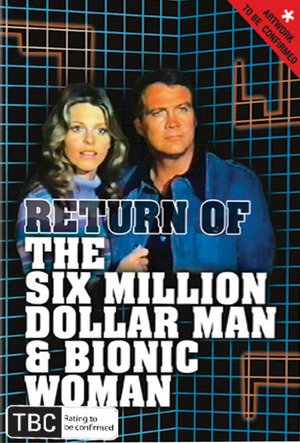 Venita Ozols-Graham: As a trainee, my very first show ever was Bionic Woman. And Kenny was the executive producer of that. I didn't meet him the first day—I think it was maybe 5 days into the show—but I was a baby. And I remember being awed by him. So that was my first time meeting Kenny—as an assistant director trainee running around—and then I was on a bunch of other shows with him because you sort of run in packs and clicks when you get along with people.Kenny Johnson: Around the time I dropped away from Bionic Woman, Frank Price, who was running Universal at the time, came up to me and said they'd just acquired the rights to the Marvel Comics superheroes. Which one would I like to do? And I said, "None of them, Frank. I don't like spandex and primary colors. It's just not what I want to do." I was trained in classic theater and I wanted to do the classics! [laughing] And I was really planning to say no, but my wife Susie (the most literate woman I know) had given me a coy of Les Miserables, which I was in the middle of reading. And I remember sitting at home and saying to myself: ah, shit. There's a way to take Victor Hugo—this concept of Jean Valjean and Inspector Javert pursuing him—and a little bit of Robert Louis Stevenson's Jekyll and Hyde and this ludicrous thing called The Incredible Hulk and turn it into a series. And so I went to Frank and I said, "Okay, I'll do the Hulk if you like this concept I came up with and will let me cast it how I'd like." And I proceeded to write the pilot for The Incredible Hulk in seven days, the whole thing story and script, and we shot the white pages of my first draft. No revisions.
Venita Ozols-Graham: As a trainee, my very first show ever was Bionic Woman. And Kenny was the executive producer of that. I didn't meet him the first day—I think it was maybe 5 days into the show—but I was a baby. And I remember being awed by him. So that was my first time meeting Kenny—as an assistant director trainee running around—and then I was on a bunch of other shows with him because you sort of run in packs and clicks when you get along with people.Kenny Johnson: Around the time I dropped away from Bionic Woman, Frank Price, who was running Universal at the time, came up to me and said they'd just acquired the rights to the Marvel Comics superheroes. Which one would I like to do? And I said, "None of them, Frank. I don't like spandex and primary colors. It's just not what I want to do." I was trained in classic theater and I wanted to do the classics! [laughing] And I was really planning to say no, but my wife Susie (the most literate woman I know) had given me a coy of Les Miserables, which I was in the middle of reading. And I remember sitting at home and saying to myself: ah, shit. There's a way to take Victor Hugo—this concept of Jean Valjean and Inspector Javert pursuing him—and a little bit of Robert Louis Stevenson's Jekyll and Hyde and this ludicrous thing called The Incredible Hulk and turn it into a series. And so I went to Frank and I said, "Okay, I'll do the Hulk if you like this concept I came up with and will let me cast it how I'd like." And I proceeded to write the pilot for The Incredible Hulk in seven days, the whole thing story and script, and we shot the white pages of my first draft. No revisions.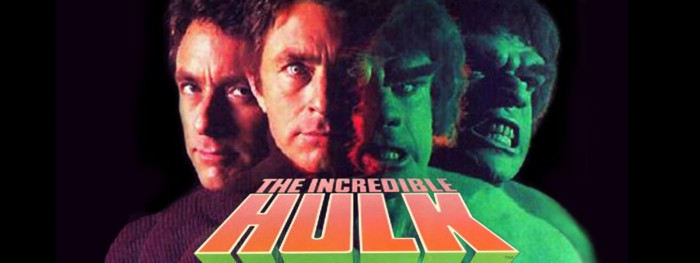 Johnson's two-hour pilot movie aired on CBS in November 1977. It was then picked up and ran for five seasons (as well as led to three made-for-television movies). Kenny Johnson: After that, I went to Warner Brothers where I was working on a feature idea—inspired by a Sinclair Lewis novel from the 30s called It Can't Happen here—and so I wrote this script about a fascist takeover over the United States. And I was talking to Brandon Tartikoff, Brandon was then President of NBC, and he wanted to read my script. And I said that, "this wasn't a small TV project; this was a big feature!" But I let him read the script and he flipped out. He said, "I really love this, but I'm worried that Americans won't go for this idea of a grassroots fascist takeover. Couldn't it be an outside foe like the Soviets or the Chinese?" Nah, I didn't think that would work. And then Jeff Sagansky, Brandon's Vice President at the time, who was sitting in the corner said, "How about aliens Kenny?" Aliens? More sci-fi? Ugh. But I went home that night, thought about it and realized that Jeff had been right. I could tell the story I wanted to tell about power, and how a spectrum of people respond to its influence, by using the outside force of aliens.
Johnson's two-hour pilot movie aired on CBS in November 1977. It was then picked up and ran for five seasons (as well as led to three made-for-television movies). Kenny Johnson: After that, I went to Warner Brothers where I was working on a feature idea—inspired by a Sinclair Lewis novel from the 30s called It Can't Happen here—and so I wrote this script about a fascist takeover over the United States. And I was talking to Brandon Tartikoff, Brandon was then President of NBC, and he wanted to read my script. And I said that, "this wasn't a small TV project; this was a big feature!" But I let him read the script and he flipped out. He said, "I really love this, but I'm worried that Americans won't go for this idea of a grassroots fascist takeover. Couldn't it be an outside foe like the Soviets or the Chinese?" Nah, I didn't think that would work. And then Jeff Sagansky, Brandon's Vice President at the time, who was sitting in the corner said, "How about aliens Kenny?" Aliens? More sci-fi? Ugh. But I went home that night, thought about it and realized that Jeff had been right. I could tell the story I wanted to tell about power, and how a spectrum of people respond to its influence, by using the outside force of aliens.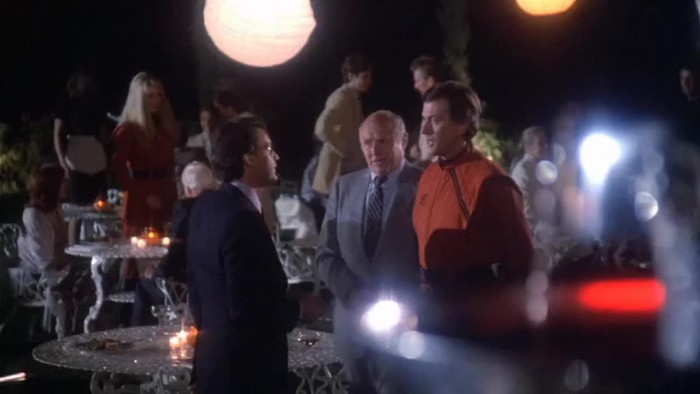 In May 1983, NBC aired an original miniseries called "V." 80 million people tuned in. And instead of veering away from science fiction, Johnson swerved closer to the pigeonhole. He next co-created a show called Shadow Chasers for ABC and then followed that up by developing an adaptation of Alien Nation for Fox. Venita Ozols-Graham: I had heard that Kenny was looking for a 1st AD on Alien Nation, so I contacted him and said, "I know that you know me—or at least that you're aware of me—and I'd love to interview for the job." So he said come on in and I did. But what he didn't know—and what I hid at the time—was that I was four months pregnant. I knew that by the end of the show I'd be very, very big, but I also knew that I could do it and make it work. I just, you know, didn't want to be turned down because of that. So I didn't tell him about and he hired me. And then we just worked together fist and glove—we'd finish each other's sentences—and from then on, I pretty much worked on all of his projects. Including, of course, Steel.
In May 1983, NBC aired an original miniseries called "V." 80 million people tuned in. And instead of veering away from science fiction, Johnson swerved closer to the pigeonhole. He next co-created a show called Shadow Chasers for ABC and then followed that up by developing an adaptation of Alien Nation for Fox. Venita Ozols-Graham: I had heard that Kenny was looking for a 1st AD on Alien Nation, so I contacted him and said, "I know that you know me—or at least that you're aware of me—and I'd love to interview for the job." So he said come on in and I did. But what he didn't know—and what I hid at the time—was that I was four months pregnant. I knew that by the end of the show I'd be very, very big, but I also knew that I could do it and make it work. I just, you know, didn't want to be turned down because of that. So I didn't tell him about and he hired me. And then we just worked together fist and glove—we'd finish each other's sentences—and from then on, I pretty much worked on all of his projects. Including, of course, Steel.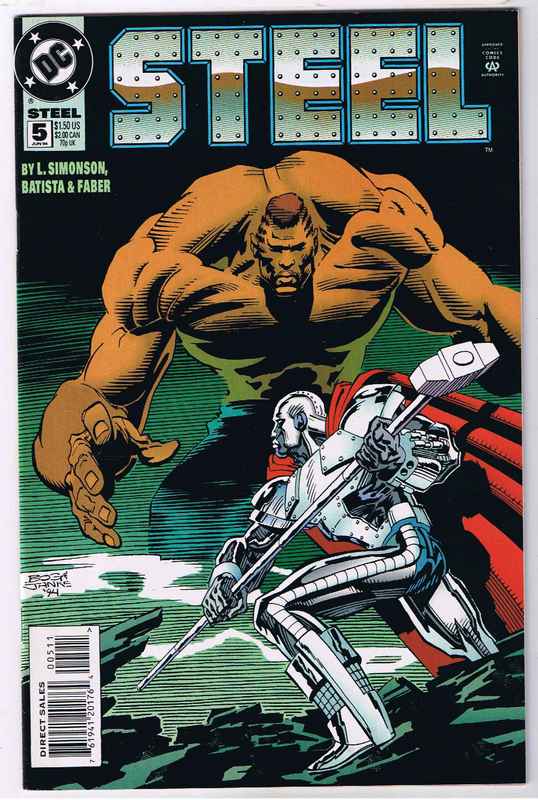
Part 2: The One Hundred and Twenty Million Dollar Man
Kenny Johnson: I got a call one day from Quincy Jones. He called to say he had this Warner Brothers property, this comic book called Steel, about a black guy who's not quite a superhero, but he becomes a hero. And there had not been a black male lead in anything like that at that time.Leonard Armato: There weren't really any black action heroes, you know what I mean? And so that was a little bit of a challenge. And really the truth is we had to fight the whole time for budget; to get the best script, to get the best director, to get the best production budget. So all that stuff was hard.Kenny Johnson: But it really appealed to me. I was raised in a really bigoted, anti-Semitic household so whenever I have the chance to strike back at intolerance and prejudice as I did in Alien Nation. I try to chip away at that. So anyway, the idea that this black guy who had created weaponry in the service fights back against street gangs with a suit of armor. It was sort of a poor man's Iron Man.Leonard Armato: Iron Man is really just a modern day version of Steel, but with a white guy in the suit instead of a black guy. And a bigger budget. Now, Iron Man is beautifully produced and Robert Downey Jr. is awesome—taking nothing about from him–but my point is that the idea of Steel, which was Quincy's idea, was a great one.Kenny Johnson: So I said, "That sounds like fun, Quincy. Who's going to star?" And he said, "Well, we've got Shaquille O'Neal attached." And I said, "That's great, Quincy, but who's going to star?"Venita Ozols-Graham: Shaq had just done Shazaam, or Kazaam, or whatever it was called.Kenny Johnson: And he had just signed the $120 million contract with the Lakers.Venita Ozols- Graham: At the same time he was trying to launch his rap career, so I think he was just trying to conquer the world of entertainment.Leonard Armato: When Shaquille came out of college, it was apparent to me that he was quite remarkable and had the capability to be the first athlete that could transcend sport and also incorporate into his world marketing, entertainment and technology. So we did a lot of things in the advertising world, you know? And then we branched out into the original content world, which is the world of Hollywood. We started developing various projects and then we decided that it would be an interesting opportunity to go into acting.Kenny Johnson: They [the producers and the studio] had a tremendous faith in Shaq. So I thought maybe they knew something that I don't know. Maybe their marketing has their finger on the pulse. I didn't really think so, but then again these people had made a lot more movies than I had. And they were offering me really nice money to write and direct.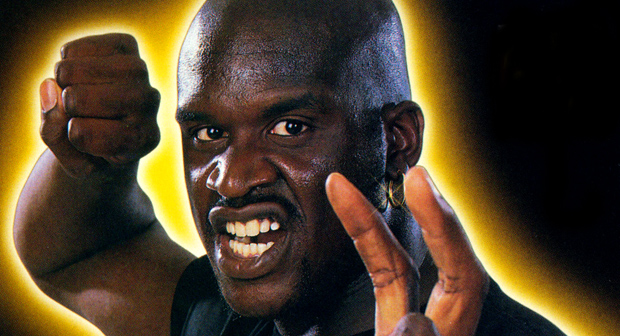 Even though this wasn't the ideal film project that Johnson had in mind, Steel was a chance for him to escape the noose-like pigeonhole of being the "TV sci-fi guy." And unlike the only other theatrical film he had directed [Short Circuit 2], this time he'd have the creative control to write a script from scratch. Venita Ozols-Graham: Kenny wrote it and I remember thinking: this is not what I expected. This is really cute. It was more like a family film, like a Disney superhero movie. It was an oddball, you know what I'm saying? This was about a guy who inadvertently became a superhero because of his ability to do something and because of his big heart. And it was a super sweet movie.Kenny Johnson: The movie didn't really have anything to do with the comic. I looked at the comic book and it was extremely violent. There were blood and brains scattered all over the wall. You know it was really ugly with these weapons. So I had to create weapons that would give me flash and bang but would not spread people's brains all over the wall. The human stuff is always what's the most important. So I wrote a script that everybody really liked. And I met with Shaq and I really liked him a lot. He was only 24 years old at the time, and he was a good guy. But all the way along, I kept going back to Lorenzo Di Bonaventura and Billy Gerber, who were the co-presidents of Warner and saying, "look guys: I'll be able to get a performance out of Shaq, that's not a problem. I've got a lot of theater training and I can do that. But we really need to put some stars around him." Mumble, mumble; it never happened.Leonard Armato: And see, part of the problem that we had is that Warner Brothers wasn't willing to pony up a big enough budget for a movie starring an African American guy. That was a time when there was no precedent for that.Kenny Johnson: At least if you want Shaq to play the lead, you gotta let me surround him with a cast that'll open the movie. If you can't open the movie, it doesn't matter, you know? I kept begging them to let me raise the budget. It was really like a cheapie movie at the time–like $21 million—but they wouldn't budge. So that was a problem and then the other issue was that the movie needed to be done in a hurry. Because we had to shoot it between the Olympics—where Shaq was playing on the US basketball team—and the beginning of the basketball season for the Lakers. So the good news is I was able to get it rolling very, very quickly.To make sure the film finished on-time and on-budget, Warner Brothers brought on to be the line producer on Steel. Mark Allan: Doing what I do—being a line producer—it's always a hard job. Because you're always in the middle. You gave your word to the studio that you were going to spend X amount of dollars. But you also want to give the director and allow him to do his creative dream, so you try your best not to say no. And by the end, either the director wants to kill you or the studio wants to fire you.And in an effort to avoid either fate, one of the things Allan did was bring on one of the hottest cinematographers working in Hollywood: Mark Irwin, whose recent credits included Scream, Passenger 57 and Dumb & Dumber. Mark Irwin: With Quincy Jones producing, Richard Roundtree playing Uncle Joe—I mean, this is Shaft! What can I say? This is the man—there was no reason to think that this was going to be a turkey.Part 3: Larger then Larger-than-lifeVenita Ozols-Graham: Have you ever met Shaq in real life? Seven feet tall and built like a brick house. His hands, oh my gosh, his hands were like baseball mitts.Leonard Armato: He's absolutely huge. Larger than larger-than-life.Venita Ozols-Graham: And people just warm up to him and love him. Because Shaquille is like this Big Jolly Brown Giant. And he's genuinely that. He's great at playing Shaquille. But, sadly, he's not a good actor.Kenny Johnson: And didn't profess to be either. He was an honest kid. So I called one of my college friends, Ben Martin, a fine director and a really good acting teacher. Ben, hey, it's Kenny. Can I hire you for a month or so to get with Shaq? Go to the Olympics with him? And in between games get in the hotel room with him and go through the scenes? And that's exactly what he did.Mark Irwin: I mean, Shaquille is many things to many to many people; as a basketball player, as a personality, as an analyst. But as an actor he's...a basketball player. So it was great to have him surrounded by other actors. Richard Roundtree, of course, as Uncle Joe. Annabeth Gish. Charles Napier. Irma Hall.Irma Hall: I played Shaquille's grandmother [Grandma Odessa] and at the time I had two very young grandchildren so I thought it would be a fun part to play. I was also familiar with the comic because I used to collect comic books. I had all these Superman comics since fro when I was a little girl. I just liked comics like kids do, I guess. And this movie sounded like a fun thing to do.Kenny Johnson: Fun is important. Whenever I start a movie, I always get the crew together and I tell them, "Look, gang, we're here to two do things: To make the most artistic product we can make given the money we've been given; and the second reason we're here is to have a good time." And that feeling pervades the whole set.Venita Ozols-Graham: The first thing that Kenny does is he addresses everybody on the first day of every show. And he takes us all in and says, "Okay. You are now my family. And as a family, I want to tell you—and I mean this with my whole heart—if you have what you think is a good idea, tell me. I don't care if you're the wardrobe person, the craft service person, the producer whatever, when it's an opportune moment—like obviously don't step in and interrupt me if I'm talking to an actor—but when it's an opportune moment if you really think it's a good idea, just wave your hand and call me over. And if it's good, not only will I use it, but I'll shout "Hey! Charlie had a good idea" and I'll tell everybody." And he did and he does. He encourages everybody to truly be their best. And then some. That's a special talent that most people don't have.Mark Allan: Kenny was so great, he would do whatever it takes. He was one of the nicest and hardest working directors I have had the pleasure to work with. He was always prepared for every day, each shot. He was a very hard working director, always aware of the schedule- and budget -and great to the crew. I remember the first time I got the script, he delivered it to my house on a Sunday. "Hi," he says, this guy who I've never met before. "Just wanted to deliver the script. By the way, I'm Kenny the director." You're the director? And you're personally delivering scripts? On a Sunday? [laughing] I think Kenny was happy to have the chance to do a feature film. And basically would have done anything. You have to remember that back then people thought a different way about television. Like if you were doing television it meant your movie career was over.Venita Ozols-Graham: I think it happens almost all the time, to be honest with you. I think it happens with actors, it happens to directors, it happens to everybody. You sort of get good at something and then that's how everybody sees you, you know? And you're suddenly a cog in the machine and that's your part.With Steel, Johnson had hoped to change that perception. And, for better or worse, a lot of those hopes rested with Shaquille O'Neal.
Even though this wasn't the ideal film project that Johnson had in mind, Steel was a chance for him to escape the noose-like pigeonhole of being the "TV sci-fi guy." And unlike the only other theatrical film he had directed [Short Circuit 2], this time he'd have the creative control to write a script from scratch. Venita Ozols-Graham: Kenny wrote it and I remember thinking: this is not what I expected. This is really cute. It was more like a family film, like a Disney superhero movie. It was an oddball, you know what I'm saying? This was about a guy who inadvertently became a superhero because of his ability to do something and because of his big heart. And it was a super sweet movie.Kenny Johnson: The movie didn't really have anything to do with the comic. I looked at the comic book and it was extremely violent. There were blood and brains scattered all over the wall. You know it was really ugly with these weapons. So I had to create weapons that would give me flash and bang but would not spread people's brains all over the wall. The human stuff is always what's the most important. So I wrote a script that everybody really liked. And I met with Shaq and I really liked him a lot. He was only 24 years old at the time, and he was a good guy. But all the way along, I kept going back to Lorenzo Di Bonaventura and Billy Gerber, who were the co-presidents of Warner and saying, "look guys: I'll be able to get a performance out of Shaq, that's not a problem. I've got a lot of theater training and I can do that. But we really need to put some stars around him." Mumble, mumble; it never happened.Leonard Armato: And see, part of the problem that we had is that Warner Brothers wasn't willing to pony up a big enough budget for a movie starring an African American guy. That was a time when there was no precedent for that.Kenny Johnson: At least if you want Shaq to play the lead, you gotta let me surround him with a cast that'll open the movie. If you can't open the movie, it doesn't matter, you know? I kept begging them to let me raise the budget. It was really like a cheapie movie at the time–like $21 million—but they wouldn't budge. So that was a problem and then the other issue was that the movie needed to be done in a hurry. Because we had to shoot it between the Olympics—where Shaq was playing on the US basketball team—and the beginning of the basketball season for the Lakers. So the good news is I was able to get it rolling very, very quickly.To make sure the film finished on-time and on-budget, Warner Brothers brought on to be the line producer on Steel. Mark Allan: Doing what I do—being a line producer—it's always a hard job. Because you're always in the middle. You gave your word to the studio that you were going to spend X amount of dollars. But you also want to give the director and allow him to do his creative dream, so you try your best not to say no. And by the end, either the director wants to kill you or the studio wants to fire you.And in an effort to avoid either fate, one of the things Allan did was bring on one of the hottest cinematographers working in Hollywood: Mark Irwin, whose recent credits included Scream, Passenger 57 and Dumb & Dumber. Mark Irwin: With Quincy Jones producing, Richard Roundtree playing Uncle Joe—I mean, this is Shaft! What can I say? This is the man—there was no reason to think that this was going to be a turkey.Part 3: Larger then Larger-than-lifeVenita Ozols-Graham: Have you ever met Shaq in real life? Seven feet tall and built like a brick house. His hands, oh my gosh, his hands were like baseball mitts.Leonard Armato: He's absolutely huge. Larger than larger-than-life.Venita Ozols-Graham: And people just warm up to him and love him. Because Shaquille is like this Big Jolly Brown Giant. And he's genuinely that. He's great at playing Shaquille. But, sadly, he's not a good actor.Kenny Johnson: And didn't profess to be either. He was an honest kid. So I called one of my college friends, Ben Martin, a fine director and a really good acting teacher. Ben, hey, it's Kenny. Can I hire you for a month or so to get with Shaq? Go to the Olympics with him? And in between games get in the hotel room with him and go through the scenes? And that's exactly what he did.Mark Irwin: I mean, Shaquille is many things to many to many people; as a basketball player, as a personality, as an analyst. But as an actor he's...a basketball player. So it was great to have him surrounded by other actors. Richard Roundtree, of course, as Uncle Joe. Annabeth Gish. Charles Napier. Irma Hall.Irma Hall: I played Shaquille's grandmother [Grandma Odessa] and at the time I had two very young grandchildren so I thought it would be a fun part to play. I was also familiar with the comic because I used to collect comic books. I had all these Superman comics since fro when I was a little girl. I just liked comics like kids do, I guess. And this movie sounded like a fun thing to do.Kenny Johnson: Fun is important. Whenever I start a movie, I always get the crew together and I tell them, "Look, gang, we're here to two do things: To make the most artistic product we can make given the money we've been given; and the second reason we're here is to have a good time." And that feeling pervades the whole set.Venita Ozols-Graham: The first thing that Kenny does is he addresses everybody on the first day of every show. And he takes us all in and says, "Okay. You are now my family. And as a family, I want to tell you—and I mean this with my whole heart—if you have what you think is a good idea, tell me. I don't care if you're the wardrobe person, the craft service person, the producer whatever, when it's an opportune moment—like obviously don't step in and interrupt me if I'm talking to an actor—but when it's an opportune moment if you really think it's a good idea, just wave your hand and call me over. And if it's good, not only will I use it, but I'll shout "Hey! Charlie had a good idea" and I'll tell everybody." And he did and he does. He encourages everybody to truly be their best. And then some. That's a special talent that most people don't have.Mark Allan: Kenny was so great, he would do whatever it takes. He was one of the nicest and hardest working directors I have had the pleasure to work with. He was always prepared for every day, each shot. He was a very hard working director, always aware of the schedule- and budget -and great to the crew. I remember the first time I got the script, he delivered it to my house on a Sunday. "Hi," he says, this guy who I've never met before. "Just wanted to deliver the script. By the way, I'm Kenny the director." You're the director? And you're personally delivering scripts? On a Sunday? [laughing] I think Kenny was happy to have the chance to do a feature film. And basically would have done anything. You have to remember that back then people thought a different way about television. Like if you were doing television it meant your movie career was over.Venita Ozols-Graham: I think it happens almost all the time, to be honest with you. I think it happens with actors, it happens to directors, it happens to everybody. You sort of get good at something and then that's how everybody sees you, you know? And you're suddenly a cog in the machine and that's your part.With Steel, Johnson had hoped to change that perception. And, for better or worse, a lot of those hopes rested with Shaquille O'Neal. 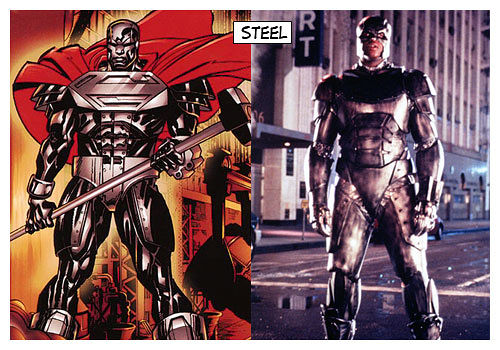 Kenny Johnson:It's funny because Shaq was only 24 years old, but he's 7'1" so you sort of lose track of the fact that he's just a kid. He's giant. And when we first started working together, he'd never look at me in the eye. And he explained it to me and said, "Listen, Kenny. You gotta understand how I was raised: my step-father was a drill sergeant and you never looked the Sergeant in the eye. Because if you did that was an act of aggression and if you did, he'd clock you." So I told Shaq: I guarantee I'm not going to throw any punches at you.Venita Ozols-Graham: You've probably already picked up by now that Kenny's a really special person.Kenny Johnson: But still, Shaq was kind of tentative. Another week or two goes by and he was still walking on eggs when he was around me. What's the matter? What's wrong? When are you going to start screaming? What do you mean? And he said: well that's what directors do, man. They scream...no Shaq, that's not me. That's not going to happen. And he said: no, some day you're going to crack. I know it. No, no. And one day I had driven myself to work that day, so I drove in and I had this little two-seater Mercedes, a 1971 little coupe that I'd had for about 30 years. And so I was on the set and Shaq came walking up and he said, "Sorry about your car, man." What do you mean. "One of the teamsters backed a car into it. It's just wrecked." Really? Your car is just smashed. It's awful. And I said, "well, what a drag. Well come on, let's rehearse." "Wait a minute, aren't you going to start screaming?" "What is my screaming going to accomplish? If the transpo guys had an accident with my car, I know that they'll take care of it. C'mon, let's get to work." Finally, at that point, he began to realize that I was serious that that's the way that I work.Mark Allan: And the way things worked with Shaq was a little unusual. He had one requirement in his contract, because when he was in Orlando he was the worst free-throw shooter in the league. So part of his deal was that at every location there had to be professional—basically in one of the trucks was a basket—so that in between takes he could practice. He had a coach and basically he was endlessly free-throwing.Venita Ozols-Graham: Yeah, that was kind of annoying for me on production. Because when we needed him, we needed him. But he had to play basketball. The funny thing is that there were a bunch of crewmembers who were actually better at making baskets than he was. You know, because he's not exactly the best freethower in the world. He's just not. So people loved playing with Shaq, but the problem was they could never get past him. That was the challenge.Mark Irwin: The challenge for us in dealing with Shaq's size was, literally, the aspect ratio. The shape of the frame. So we did a lot of over-shoulder angles, that was kind of the deal. And we'd often arrange to have him sitting, or have those around him standing on a step. So we tried to make it organic, as much as we could...and to make it look natural was part of it. Annabeth Gish was in a wheelchair, though. So now we're trying to shoot a scene with Shaq where the people around him are sitting...And the difference between them is huge. So we tried to keep things moving, and have him kneel or lean; that felt more organic. And he was very good about it. He understood. And Kenny was very aware of the ground he was walking on. In the sense that this is a superhero and he was very determined to make him a working class superhero.Mark Irwin: Kenny wanted Shaq to be part of the world that he lived in. He wanted to keep it grounded and shoot in the neighborhood. In South Central. And remember, this was twenty years ago: there were gang wars in Los Angeles.Mark Allan: And we needed Shaq to be as inconspicuous as possible. So we really had to shoot it at night.Irma Hall: The funny thing was that a lot of the people in the community, the street people, they didn't realize that it was a movie set.Which would eventually lead to a problem...
Kenny Johnson:It's funny because Shaq was only 24 years old, but he's 7'1" so you sort of lose track of the fact that he's just a kid. He's giant. And when we first started working together, he'd never look at me in the eye. And he explained it to me and said, "Listen, Kenny. You gotta understand how I was raised: my step-father was a drill sergeant and you never looked the Sergeant in the eye. Because if you did that was an act of aggression and if you did, he'd clock you." So I told Shaq: I guarantee I'm not going to throw any punches at you.Venita Ozols-Graham: You've probably already picked up by now that Kenny's a really special person.Kenny Johnson: But still, Shaq was kind of tentative. Another week or two goes by and he was still walking on eggs when he was around me. What's the matter? What's wrong? When are you going to start screaming? What do you mean? And he said: well that's what directors do, man. They scream...no Shaq, that's not me. That's not going to happen. And he said: no, some day you're going to crack. I know it. No, no. And one day I had driven myself to work that day, so I drove in and I had this little two-seater Mercedes, a 1971 little coupe that I'd had for about 30 years. And so I was on the set and Shaq came walking up and he said, "Sorry about your car, man." What do you mean. "One of the teamsters backed a car into it. It's just wrecked." Really? Your car is just smashed. It's awful. And I said, "well, what a drag. Well come on, let's rehearse." "Wait a minute, aren't you going to start screaming?" "What is my screaming going to accomplish? If the transpo guys had an accident with my car, I know that they'll take care of it. C'mon, let's get to work." Finally, at that point, he began to realize that I was serious that that's the way that I work.Mark Allan: And the way things worked with Shaq was a little unusual. He had one requirement in his contract, because when he was in Orlando he was the worst free-throw shooter in the league. So part of his deal was that at every location there had to be professional—basically in one of the trucks was a basket—so that in between takes he could practice. He had a coach and basically he was endlessly free-throwing.Venita Ozols-Graham: Yeah, that was kind of annoying for me on production. Because when we needed him, we needed him. But he had to play basketball. The funny thing is that there were a bunch of crewmembers who were actually better at making baskets than he was. You know, because he's not exactly the best freethower in the world. He's just not. So people loved playing with Shaq, but the problem was they could never get past him. That was the challenge.Mark Irwin: The challenge for us in dealing with Shaq's size was, literally, the aspect ratio. The shape of the frame. So we did a lot of over-shoulder angles, that was kind of the deal. And we'd often arrange to have him sitting, or have those around him standing on a step. So we tried to make it organic, as much as we could...and to make it look natural was part of it. Annabeth Gish was in a wheelchair, though. So now we're trying to shoot a scene with Shaq where the people around him are sitting...And the difference between them is huge. So we tried to keep things moving, and have him kneel or lean; that felt more organic. And he was very good about it. He understood. And Kenny was very aware of the ground he was walking on. In the sense that this is a superhero and he was very determined to make him a working class superhero.Mark Irwin: Kenny wanted Shaq to be part of the world that he lived in. He wanted to keep it grounded and shoot in the neighborhood. In South Central. And remember, this was twenty years ago: there were gang wars in Los Angeles.Mark Allan: And we needed Shaq to be as inconspicuous as possible. So we really had to shoot it at night.Irma Hall: The funny thing was that a lot of the people in the community, the street people, they didn't realize that it was a movie set.Which would eventually lead to a problem...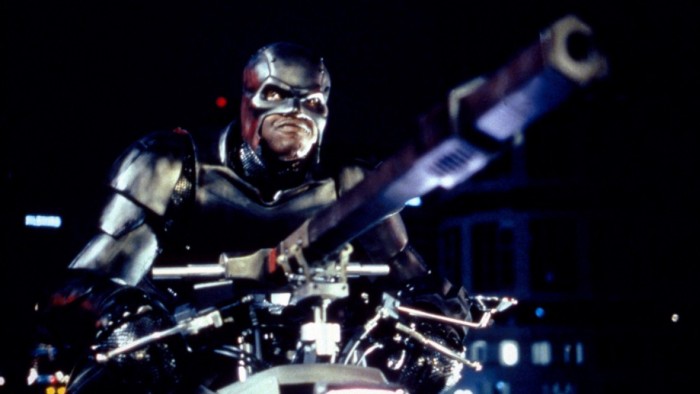
Part 4: South Central
Mark Irwin: Where we shot Shaq's lair was on the edge of a, let's say, a sketchy part of town. A lot of drug dealing going down. So we had Shaq's character on a motorcycle and then a police helicopter following him and then above that our helicopter basically shooting the police helicopter. So we had 2 helicopters and a motorcycles driving through the neighborhood, not the kind of thing people dealing drugs are interested in hearing. They didn't know we were shooting a movie.Venita Ozols-Graham: And suddenly there was this ping-ping-ping.Mark Irwin: Out of the alley gunfireVenita Ozols-Graham: We had an electrician up in a commodore and I heard him over the walkie-talkie saying, "Shots fired, shots fired, I'm going dark and coming down."Mark Irwin: They're shooting at our lights that are up on a crane, and then our helicopter. Okay, great. So who do we call? 9-11. Who shows up? Another helicopter. Now there's three fucking helicopters and a motorcycle and the whole film crew hiding. Everyone's under this metal thing. Pretty crazy...Venita Ozols-Graham: A gang member had been killed at the bottom of the hill.Mark Allan: But other than that, there wasn't really any problems. We weren't behind schedule, we weren't over budget.Kenny Johnson: In fact, I brought the film under budget.Irma Hall: It was just a fun film. The main thing that I remember is I had a lot of fun doing it. And it was fun working with Shaquille.Venita Ozols-Graham: I have an amazing story, actually. It's not very long. But my five-year old daughter was an extra in the movie. And when she first met Shaq, he was sitting in a director's chair on a little break. She walked up to him with a little wooden box and inside of it was a stuffed gecko. Just a little thing, like four or five inches long. And she carried it with her wherever she went; she loved this little gecko. So she goes up to Shaq and says hi and he looks down and say, "Hey! Who are you?" And I was just a couple feet away laughing. And she goes, "I'm Brigitte, I'm working on the movie to." And he goes, "Hi Brigitte, great to meet you. What do you got there in that box?" She says, "My gecko." Oh, is it a real gecko? She says no, and then she opens it up and hands it to him. So he takes a look at the little gecko and he says, "This is really nice." Then he says to her, "Would you like a real one?" And then he looks at me—because he knows I'm her mother—to see if it's okay and I just shrug my shoulders and go sure. And my daughter says, "Oh, YEAH!" She definitely wants a real gecko.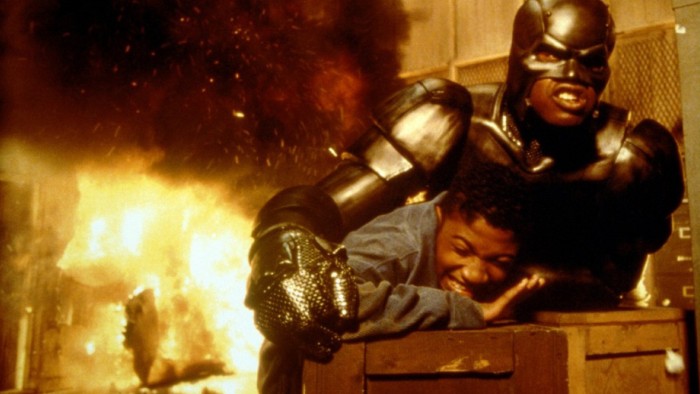 Then, without Ozols-Graham realizing, O'Neal told her daughter to come by his trailer during the lunch break later that day. Venita Ozols-Graham: So I'm eating with everybody until all of the sudden my daughter yanks my arm. "Mom, mom, come with me," she whispers, and takes my hand to drag me to Shaquille's motor home. When we get there, she knocks on the door and the door opens. Shaq smiles and says, "Come on in, Brigitte and Mom." And so I walk in behind my daughter and it turns out that Shaq has sent someone out to buy this huge terrarium. The whole nine yards; a desert scene with all this lightening and a couple of geckos in there. It was magnificent. I went, "Oh my god! Are you kidding?" And he said, "No, this is for Brigitte. The only thing I insist on is that you name one of them Shaq." And she said, "You got it; the one with the brown and black tail." So we took it home and we had Shaq and Ecko the Gecko. I was astonished.Apparently, for a long time after that, crewmembers would walk around with toy cars and say: Look, Shaq, have you seen my toy Ferrari?Venita Ozols-Graham: But then the story goes one step further. Bridget was on set the next day and she went up to Shaq and told him that she wanted to give him something. And she hands him the silk gecko, her favorite thing in the world. And I saw it coming and I saw him resisting. He really did not want to take it. And I said, "Shaq, people need to be able to give you to you too." And he saw how serious my tone was. Because it was something my daughter really wanted to do. She didn't just want to be a taker and I didn't want to teach her to be a taker. I wanted to teach her to give too. So Shaq took the little silk gecko in his big hand and looked down at this little blonde girl looking up at him with big blue eyes and he was just really overwhelmed. He said, "Thank you, Bridget. Thank you. I'll treasure this." She said, you're welcome and then skittered off. And it was just this really beautiful, poignant moment that I'll never forget. Kind of like Frankenstein meets the little girl at the lake moment.
Then, without Ozols-Graham realizing, O'Neal told her daughter to come by his trailer during the lunch break later that day. Venita Ozols-Graham: So I'm eating with everybody until all of the sudden my daughter yanks my arm. "Mom, mom, come with me," she whispers, and takes my hand to drag me to Shaquille's motor home. When we get there, she knocks on the door and the door opens. Shaq smiles and says, "Come on in, Brigitte and Mom." And so I walk in behind my daughter and it turns out that Shaq has sent someone out to buy this huge terrarium. The whole nine yards; a desert scene with all this lightening and a couple of geckos in there. It was magnificent. I went, "Oh my god! Are you kidding?" And he said, "No, this is for Brigitte. The only thing I insist on is that you name one of them Shaq." And she said, "You got it; the one with the brown and black tail." So we took it home and we had Shaq and Ecko the Gecko. I was astonished.Apparently, for a long time after that, crewmembers would walk around with toy cars and say: Look, Shaq, have you seen my toy Ferrari?Venita Ozols-Graham: But then the story goes one step further. Bridget was on set the next day and she went up to Shaq and told him that she wanted to give him something. And she hands him the silk gecko, her favorite thing in the world. And I saw it coming and I saw him resisting. He really did not want to take it. And I said, "Shaq, people need to be able to give you to you too." And he saw how serious my tone was. Because it was something my daughter really wanted to do. She didn't just want to be a taker and I didn't want to teach her to be a taker. I wanted to teach her to give too. So Shaq took the little silk gecko in his big hand and looked down at this little blonde girl looking up at him with big blue eyes and he was just really overwhelmed. He said, "Thank you, Bridget. Thank you. I'll treasure this." She said, you're welcome and then skittered off. And it was just this really beautiful, poignant moment that I'll never forget. Kind of like Frankenstein meets the little girl at the lake moment.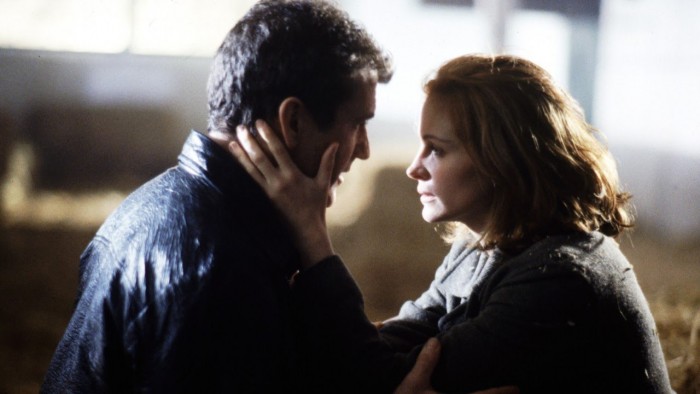
Part 5: Action Figures and Conspiracy Theories
On August 9, 1997—a week before Steel was released—Warner Brothers held a premiere for the film at Mann's Chinese Theatre on Hollywood Boulevard. Venita Ozols-Graham: The theater was packed. It was standing room only. Shaquille came, I brought my kids. And my kids were in the movie. It was a big deal opening.Kenny Johnson: The movie tested great at 60 preview screenings. Warners was sure it would be a hit and it was very exciting to see Hollywood Boulevard closed off and packed with enthusiastic fans for our premiere. But our premiere was on the same weekend that Warners was opening another movie called Conspiracy Theory with Mel Gibson and Juliet Roberts when they were at the peak of their career highs. They were the hottest two stars in Hollywood and so Warner Brothers opened this movie called Conspiracy Theory and it didn't open well. And I thought: oh my god. They've got Mel Gibson and Julia Roberts...and I've got a basketball player? They think my movie's gonna open?Venita Ozols-Graham: And they put zero advertising into it. It was astonishingKenny Johnson: The weekend that Steel came out, I went to several theaters in my area and you could fire a cannon off and not hit anybody. There was nobody there. It was exactly what I had worried about from the beginning. And the week after that happened, the entire marketing department at Warner Brothers was fired.Leonard Armato: We were a little disappointed with the way that Steel was handled. Didn't have the budget it needed, didn't have the marketing it needed, didn't have the resources it needed.Venita Ozols-Graham: In theory, if they had marketed it correctly—to kids, to pre-teens—I think it would have been a hit. But not only was it not marketed correctly, it wasn't marketed at all.Mark Irwin: I don't know. It's funny, though, when you see something cut together and say: oh my god, this is so corny. But when you're shooting all the pieces for that over a couple of weeks, you don't get that sense. Of the aroma of corn coming out of the woodwork. [laughing] If you look closely at my IMBD list of shame there are a few contenders like Blonde Ambition, Freddy Got Fingered and Extreme Justice but I love them all like the bastard stepchildren that they are. But I had a fun time working on Steel and everyone did their best.Mark Allan: If the people are nice and the crew is nice then I don't think you really worry about it [the quality of a movie].Leonard Armato: But, you know, it was somewhat of a frustrating experience. And at that point in time a lot of people were criticizing Shaq because he hadn't won a championship yet. They were saying he was doing too many things, not focused on basketball. So I think there was still discussion about him doing more films, but when he came to Los Angeles, it was really important to him to win the championship. So I think he decide dot take a little break and then he did get in there and win three in a row so that was pretty good.Kenny Johnson: I was happy with how it came out, considering the limitations. I've always tried to make a dime look like a dollar, hoping that the next time they give me a quarter. But usually they say: you did so well with a dime, what can you do with a nickel?Venita Ozols-Graham: Like I said, Kenny is a special person. I remember going into his office a couple months after he hired me on Alien Nation and it was getting to a point where he was going to notice that I was pregnant. So I went into his office and told him. And what Kenny said was really wonderful. He said, "Had you told me, I would have hired you anyway." I said I know that now, but I didn't know that then. Honest to god, the only director I'd ever work for again as a 1st AD is Kenny Johnson.Kenny Johnson: Well, the payoff is that about two months after the film came out I had lunch with Billy Gerber [who had since been fired by Warner Brothers]. "Billy," I said, "Explain to my why you wouldn't give me a star to have a chance of opening the picture." And he said, "Well, you know, up until the week before we were really having second thoughts about the prospect. We heard your concerns and were thinking that maybe we ought to pull Shaq out of it and put in Wesley Snipes. Or somebody like that, somebody pretty formidable." Yes, of course. That would have been great. Why did you not do that? "Well," Billy said, "I'll tell you. The marketing department at Warners came to us and said they thought they could sell more toys with Shaq than we could with Wesley."

